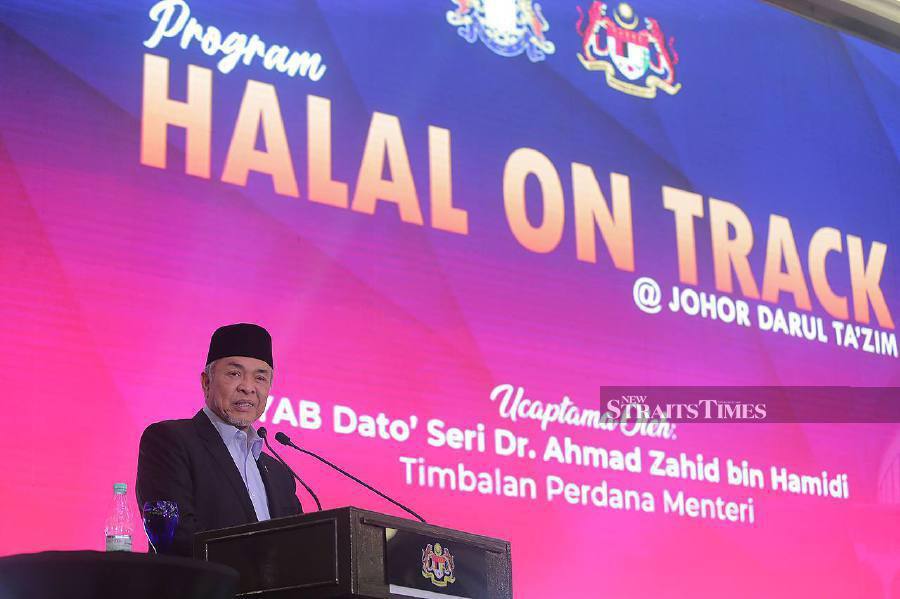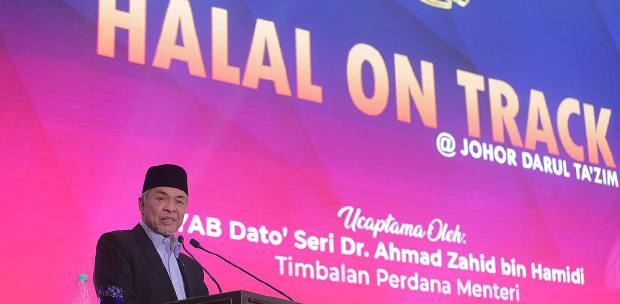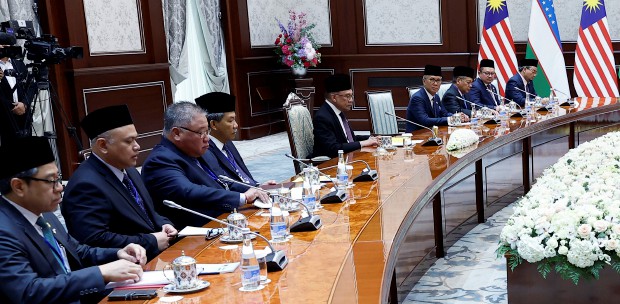JOHOR BARU: The Malaysian Islamic Development Department (Jakim) has been challenged to halve its halal certification approval process to 15 days.
Deputy Prime Minister Datuk Seri Dr Ahmad Zahid Hamidi, who is also the Malaysian Halal Council chairman, expressed his confidence in Jakim's ability to meet the challenge.
He said, based on Jakim's track record, certification applications were approved within 23 days.
He said Majlis Amanah Rakyat (Mara) will be roped in to help Jakim with the approval process to ensure it meets the 15-day deadline.
"I challenge Jakim to shorten the approval process to 15 days, without additional budget or staff," he said at the Johor leg of the Halal on Track (HoT) launch held at the Persada International Convention Centre, here, today.
HoT is a platform designed to streamline Malaysian halal certification for entrepreneurs, offering comprehensive services from various certification stakeholders under one roof.
The programme saw more than 3,000 participants in attendance.
Also present at the programme launch were Johor Menteri Besar Datuk Onn Hafiz Ghazi, Minister in the Prime Minister's Department (Religious Affairs) Senator Datuk Dr Mohd Na'im Mokhtar, Johor Islamic Religious Affairs Committee chairman Mohd Fared Mohd Khalid and Johor Assembly Speaker Datuk Dr Puad Zarkashi.
The country's halal industry is expected to grow quickly and has vast potential, said Zahid.
He added that the halal sector should go beyond the food and beverages and include various products and services including banking, insurance and ingredients used in raw materials, said Zahid.
"The potential of the halal industry is huge. It is not just about food... it's about making sure all products and services are prepared, processed, stored, handled, and transported with high quality, by Muslims.
"This means products are clean and free from anything prohibited, benefiting everyone, not just Muslims. Everyone wants high-quality, safe products," he added.
Zahid said, during his recent working trip to China, there were suggestions that Malaysia halal products be marketed under Fortune 500 companies.
"We should market halal products robustly and fully tap into the potential of halal products. Malaysia's halal exports reached almost RM60 billion in 2023.
"The goal is to increase it to RM300 billion by 2030, making up 11 per cent of the country's economy."
Under the 12th Malaysia Plan, the halal industry was recognised as a key sector to boost the country's workforce, industrial development, and global competitiveness.
In 2023, the halal industry contributed 7.9 per cent of the country's gross domestic product, with exports amounting to RM53.72 billion.
Malaysia continues to lead the world in the halal food sector, according to the Global Islamic Economy Indicator (GIEI) 2023, making the country a role model for both Islamic and non-Islamic nations.






